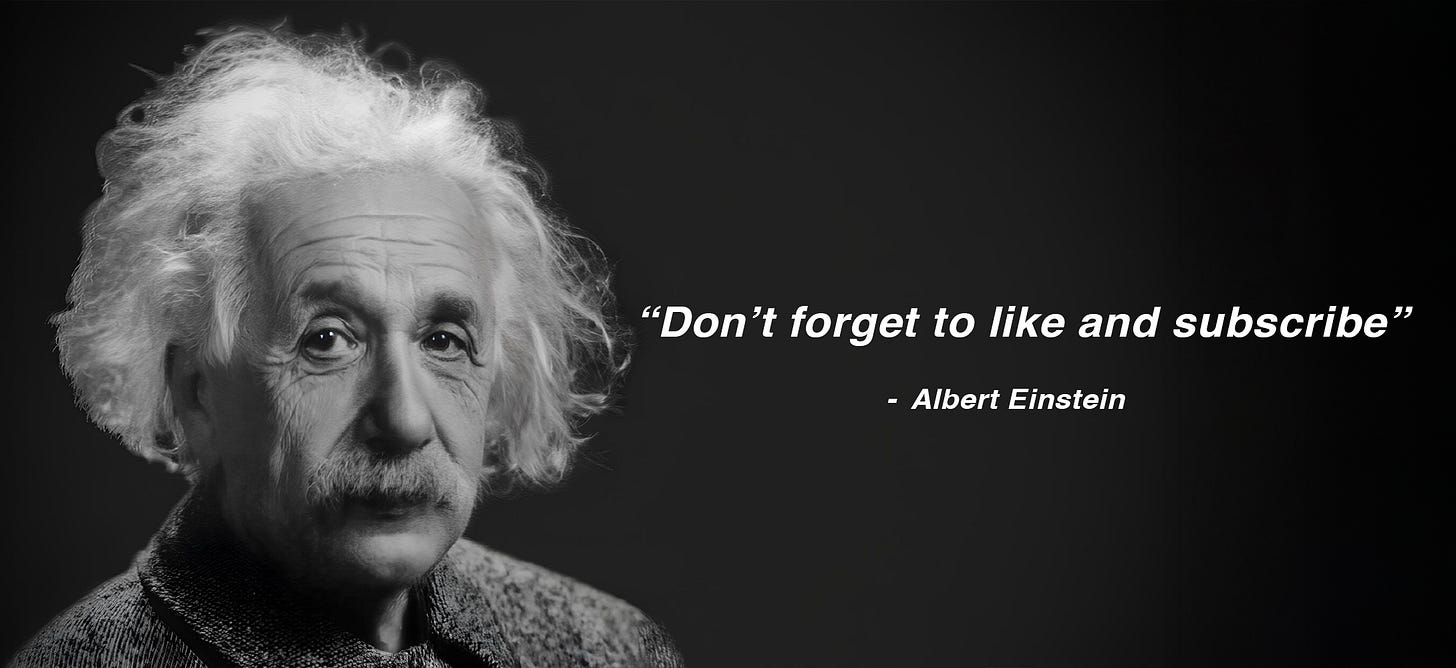Why The Best People Don’t Have An Opinion On Everything.
“The more I know, the less I understand”
Paul Weller
It’s often said that we live in the ‘Information Age’ - in theory, a utopian world in which every citizen is empowered with the knowledge needed to live a healthy, happy life. Gone are the days when a tiny minority of people held all the cards. The Internet has brought us together. With the accumulated wisdom of the human race at our fingertips, those old oppressive power structures don’t stand a chance.
It’s a lovely theory that unfortunately bears no resemblance to reality. When you look at the world we live in, ‘Incoherence’ is a more fitting term than ‘Information’. The Internet is a disorganised bargain bin of news items and opinions, spilling into your brain from every device you own. It won’t be long until your kettle is sending you regular updates on Russia-Ukraine.
There are many symptoms of this digital disease. One of the most annoying is the industry of influencers who now purport to be experts on every single issue. Climate change, vaccines, the Middle East, how to please a woman in the bedroom; whatever the topic, their opinion is uncontestable, and the whole world needs to hear it.
Obviously, it’s impossible to be well-informed on everything. Truly understanding even one complex issue requires a huge investment of time and effort. Sadly, this mindset doesn’t align with the online world - where quantity is incentivised over quality. If you have a decent-sized profile on X, and a good grasp of audience growth, engagement and monetisation, you can make thousands of dollars a month - more than many mainstream journalists. But to keep the cash rolling in, you need to keep driving that engagement. You need to post and comment relentlessly. And that inevitably comes at the expense of accuracy and nuance. It’s a perfect example of Goodhart’s Law: “When a measure becomes a target, it ceases to be a good measure.”
This is why many commentators seem to get more contentious as time goes on. They’re on a financial treadmill - and the surest way to stay upright is to fire off attention-grabbing takes on trending topics. Whether the attention is positive or negative hardly matters. The news cycle moves at lightning speed, and even the most absurd takes are swiftly buried under the next avalanche of content.
The situation is just as dire for those that consume what these outlets and influencers peddle. Diehard fans of Candace Owens will take her opinion on anything whatsoever as gospel - even something like climate change, which she admits to knowing nothing about. And acolytes of Andrew Tate won’t discriminate between the validity of his views on fitness, and the sheer lunacy of his views on women.
Furthermore, you can predict a person’s opinion on a whole range of issues, just by knowing their stance on one particular thing. Someone who parades around with a sign saying “Eat the Rich” is probably also an advocate of Net Zero (despite the fact that Net Zero will decimate the poorest in our society). And those most sceptical about the safety of Covid vaccines are far more likely to be Trump supporters than Democrats. Objectively, these issues have nothing to do with each other, but the correlations hold strong.
Why does cultish tribalism predominate over critical thinking in this way? Again, because the structure of the online world incentivises it. The algorithms feed you stuff that either confirms what you already think, or shows how batshit insane the other side is. The outcome is the same: division. Clickbait over clarity, trash over truth.
To be honest, I don’t have an answer to this conundrum. It seems almost impossible to untangle the web of incentives that keep the media landscape the way it is. All I can do is be willing to admit when I don’t know what I’m talking about. Does the world need to hear my opinion on Ukraine or the Middle East? I think not. From now on, I’ll stick to my area of expertise: managing the England football team from the comfort of my sofa.



Excellent. Socrates already said it millennia ago: I seem, then, in just this little thing to be wiser than this man at any rate, that what I do not know I do not think I know either.
The less you know, the more confident you are. And, unfortunately, people tend to use projected confidence as a proxy for accuracy.